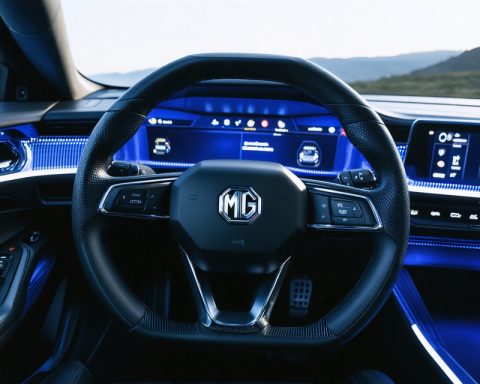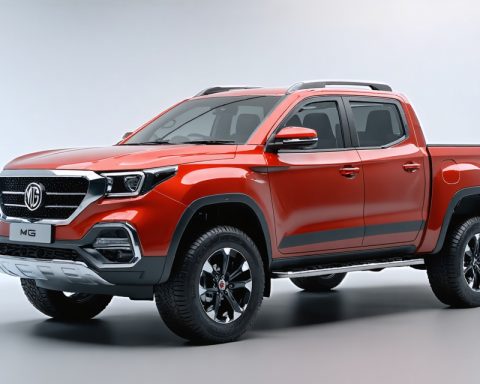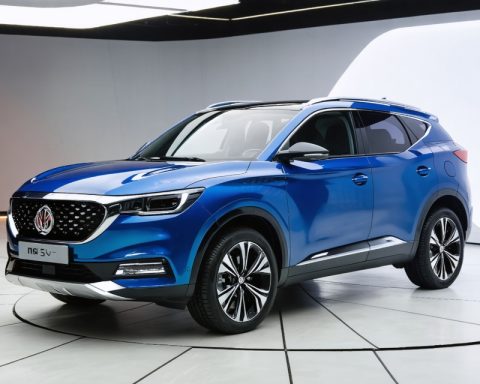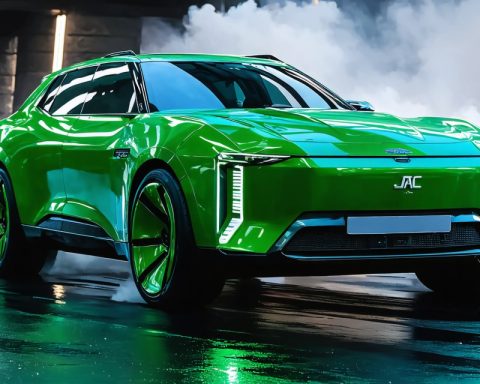- Porsche is pioneering a circular supply chain by recycling high-voltage EV batteries to reshape automotive sustainability.
- The project focuses on recovering valuable materials like nickel, cobalt, manganese, and lithium from used batteries.
- So far, Porsche has recovered 65 tonnes of “black mass,” emphasizing transformation from waste to resource.
- The refined materials are used to craft new EV batteries meeting Porsche’s quality standards.
- Porsche aims to address EU battery regulations by 2031, which demand increased recycled content and traceability.
- A closed-loop system helps mitigate environmental impact and shield against raw material market fluctuations.
- Porsche plans to produce EV batteries with recycled materials, integrating sustainability with luxury performance.
- This initiative showcases Porsche’s commitment to a green future, setting a new automotive sustainability standard.
A vision is taking shape in the world of sustainable technology, and it’s wearing the sleek badge of Porsche. As the glimmering German marque dives into a groundbreaking pilot project, it’s not just about innovation but transformation—a commitment to changing how we perceive and utilize one of today’s most critical resources: electric vehicle (EV) batteries.
Porsche is unraveling the might of circular supply chains by focusing on recycling high-voltage EV batteries—a venture that could redefine the future of automotive sustainability. This project is not merely about recycling; it’s a bold strategy to recover essential raw materials like nickel, cobalt, manganese, and lithium from obsolete batteries. Imagine the humble beginnings of a used battery, shredded into a granular form known as “black mass,” from which these critical elements are meticulously extracted.
So far, Porsche has yielded an impressive 65 tonnes of this raw material, marking a significant step in its endeavor to transform what was once considered waste into a valuable resource. The journey of black mass doesn’t end with mere recycling; it undergoes rigorous refinement processes to separate high-purity components. These purified elements are pivotal for crafting new, high-performance EV batteries, aligning with Porsche’s lofty quality standards.
Porsche’s endeavor isn’t just about technological advancement; it’s a strategic maneuver aimed at addressing future challenges. With looming EU battery regulations set to become more stringent by 2031, requiring increased recycled content and traceability, Porsche’s foresight is evident. By embracing a closed-loop system, the carmaker not only mitigates environmental impact but also protects itself against geopolitical fluctuations in the raw material markets.
The ultimate phase of this initiative will be realizing the dream on the road. Porsche plans to manufacture batteries incorporating a specified proportion of recycled materials, circling back the fruits of this project into their high-performance cars. This initiative highlights a broader vision, where sustainability marries luxury, underscoring Porsche’s commitment to a greener planet without compromising its legendary performance standards.
Emphasizing the importance of a circular economy within their sustainability strategy, Porsche is setting a new standard in the automotive landscape. In an era dominated by environmental concerns, Porsche is not just driving towards a sustainable future; it’s racing ahead, leading the pack and inviting others to follow in its tire marks. Through this pioneering project, Porsche underscores that the road to sustainability is as dynamic and exhilarating as the performance of their celebrated vehicles.
Porsche’s Revolutionary Approach to EV Battery Recycling: What You Need to Know
The automotive industry is at a turning point, with luxury brands like Porsche leading the charge toward sustainability. With a visionary approach, Porsche is championing the circular economy by setting new benchmarks in electric vehicle (EV) battery recycling. Here’s what you need to know about this groundbreaking initiative, its implications for the future, and actionable insights for the automotive industry.
Understanding Porsche’s Circular Supply Chain Model
Porsche’s initiative centers on the development of a circular supply chain for EV batteries. This involves reclaiming valuable minerals such as nickel, cobalt, manganese, and lithium from spent batteries. The journey begins by converting these batteries into a granulate known as “black mass,” from which these elements are extracted.
Key Facts:
– Resource Recovery: Porsche has already recovered 65 tonnes of black mass, a testament to the project’s success.
– Environmental Impact: The initiative significantly reduces reliance on mining, thereby lowering the environmental footprint.
– Regulatory Compliance: By preparing for forthcoming EU regulations requiring increased recycled content, Porsche ensures compliance and market readiness.
How-To: Steps for Implementing a Circular Supply Chain Model
1. Collection and Transport: Establish a system for collecting old batteries from consumers and transporting them to recycling facilities.
2. Black Mass Production: Shred the batteries into black mass, enabling extraction of essential minerals.
3. Refinement Process: Purify the extracted materials to obtain high-grade elements for reuse.
4. Manufacturing Integration: Utilize these recycled materials in the production of new EV batteries.
Real-World Use Cases: Benefits Across Industries
– Automobile Manufacturers: Reduces costs associated with sourcing new materials and mitigates supply chain risks.
– Government Organizations: Promotes regulatory compliance and boosts sustainable economic development.
– Environmental NGOs: Demonstrates successful models of the circular economy that can be adapted in other sectors.
Reviews & Comparisons
Porsche’s efforts should be viewed alongside initiatives by other automotive giants like Tesla and BMW, who are also exploring battery recycling. However, Porsche is prominent in integrating recycled materials back into their luxury vehicles without compromising performance standards.
Insights & Predictions
As leading manufacturers like Porsche adopt circular supply chains, expect heightened investments in recycling technology, more stringent regulations, and an accelerated shift toward sustainable automotive manufacturing. The initiative also highlights the importance of sustainability in luxury brands, showcasing that environmental responsibility does not conflict with brand values.
Quick Tips for the Industry
1. Invest in R&D: Focus on innovations in recycling technology to stay ahead of regulatory requirements.
2. Partner with Experts: Collaborate with specialized recycling firms to leverage expertise.
3. Educate Consumers: Promote awareness about recycling benefits to encourage adoption.
Final Thoughts
Porsche’s transformative project is more than just an environmental statement; it’s a strategic move that sets a precedent for the auto industry’s sustainable future. By embracing innovative recycling methods, Porsche proves that luxury and sustainability can coexist harmoniously, paving the way for others to follow.
For more information on sustainable practices in the automotive industry, visit Porsche.




















